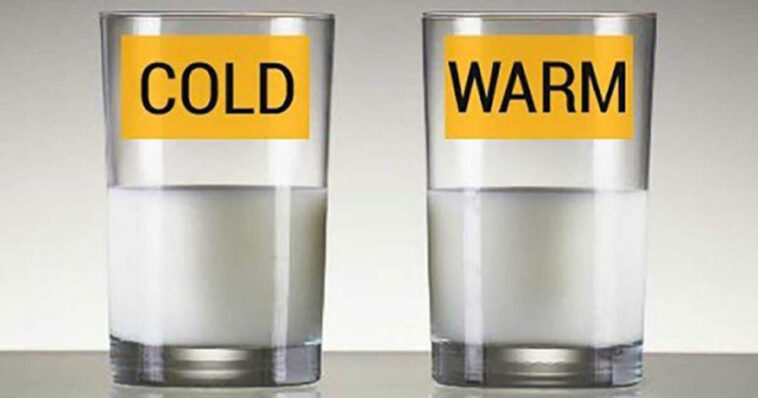The Benefits and Risks of Warm, Hot, and Cold Drinking Water, Do you and your companion disagree on what constitutes a decent glass of water? Perhaps one of you prefers ice-cold water while the other prefers room-temperature water. You may even argue over whose water preference is the healthiest option. You may question, “What is the optimal temperature for drinking water?” Similar to the distinctions between mineral and spring water, water temperatures can have different effects on the body, so it is important to understand the benefits and risks of warm, hot, and cold drinking water.
WHAT YOU NEED TO KNOW ABOUT DRINKING COLD WATER
Because it aids in hydration, drinking cold water has numerous health advantages, and you may even seek it after an exertion or on a warm day. Here are some Benefits and Risks of Warm, Hot, and Cold Drinking Water.
THE BENEFITS OF DRINKING COLD WATER
Cold water is soothing, which encourages you to consume more of it. This keeps your body hydrated so that it can function optimally. In addition to boosting your metabolism and lowering your body temperature during or after exercise, drinking frigid water can also help to stimulate your metabolism. Cold water can also enhance exercise performance by reducing fatigue, allowing you to exercise for longer. You may also experience an increase in concentration and awareness after drinking a glass of cold water. Inflammation and edema in the body, whether caused by muscle soreness or a condition like arthritis, can also be reduced by drinking cold water.
WHEN IS THE BEST TIME TO DRINK COLD WATER?
While there is no single optimal time to consume chilled water, there are a few considerations to bear in mind when pouring a glass. During exercise, drinking chilled water has many health benefits. In sweltering weather or after an exertion, drinking cold water can help you calm down and prevent dehydration.
THE RISKS OF DRINKING COLD WATER
Note that consuming lukewarm water is not always the best option. In fact, frigid water has potential drawbacks and may cause discomfort or digestion issues in some individuals, particularly during or after a meal. When the frigid water reaches the stomach, it can contract the muscles and delay digestion. Drinking frigid water can also make some health conditions worse. The hazards associated with consuming cold water are generally minor for the majority of individuals.
THE RISKS AND BENEFITS OF WARM WATER EXPLAINED
There are numerous health advantages to drinking tepid or room-temperature water. In addition to hydrating you, you may find that water at room temperature is more comfortable than water that is too chilly or too heated. Here are the advantages, risks, and optimal times for drinking tepid water.
THE BENEFITS OF DRINKING WARM WATER
Drinking water stimulates digestion and promotes the healthy transportation of food through the digestive tract. Warm water can improve the efficiency of this process because the body does not have to adapt to extreme temperatures. Warm water can also aid in stool softening, thereby reducing the risk of constipation and facilitating bowel movements. It has been demonstrated that warm water has a calming influence on the body, thereby reducing tension and anxiety. Warm water can also improve circulation and blood flow, which can be especially beneficial for individuals with recent injuries or certain health conditions.
WHEN IS THE BEST TIME TO DRINK WARM WATER?
On a very sweltering or very frigid day, warm water may be the optimal choice for hydration. Room-temperature water causes less of a disturbance to the system and allows the body to modulate its temperature more effectively. Due to the fact that room-temperature water is also known to promote relaxation and reduce tension, a small glass of warm water before bed can also help you get a decent night’s sleep.
THE RISKS OF DRINKING WARM WATER
Drinking room-temperature water is generally considered safe for most people. In rare instances, warm water could interact with medications, so you should follow all instructions carefully or talk to your healthcare provider if you have any questions or concerns. In general, the risks of drinking warm water are generally considered minor.
KNOW WHY AND WHEN HOT WATER IS GOOD FOR YOU
In some cases, drinking hot water might sound like the best option. Perhaps you’ve been outside on a cold, blustery day and are looking for a quick way to warm up and also rehydrate. Here’s what you need to know about the benefits and risks of drinking hot water.
THE BENEFITS OF DRINKING HOT WATER
Hot water is just as hydrating as cold or warm water. It can also help promote digestion and reduce digestive issues like constipation, bloating, or indigestion. Hot water can help increase blood flow and improve circulation in the body, which can help with certain health conditions. Inhaling the steam from hot water can also help loosen mucus and relieve nasal congestion, making it a great natural remedy for cold and flu symptoms. Drinking hot water can also have a calming effect and help reduce your stress.
WHEN IS THE BEST TIME TO DRINK HOT WATER?
Drinking hot water first thing in the morning can help promote hydration and kickstart your metabolism. Hot water can also help relieve certain symptoms when you are sick, including congestion, sore throat, or coughing. You may also experience better sleep if you have a small cup of water before bed.
THE RISKS OF DRINKING HOT WATER
One potential risk of drinking hot water is that too high temperatures could cause burns or scalds in the mouth or throat. Always pay attention when you drink something hot to avoid this type of pain and discomfort.
Also read: How To Spot contaminated Water
WHAT IS THE BEST TEMPERATURE TO DRINK WATER?
There is no “best” temperature for drinking water, but there are advantages to drinking water at various temperatures depending on the circumstances. In general, water at ambient temperature is the most agreeable, regardless of the time of day. Warm water will not hinder digestion, and most people can tolerate this temperature. On a sweltering day or after an intense workout, cold water can be especially revitalizing and satisfying. When you are sick and in need of something soothing or consoling, hot water may provide additional benefits.




